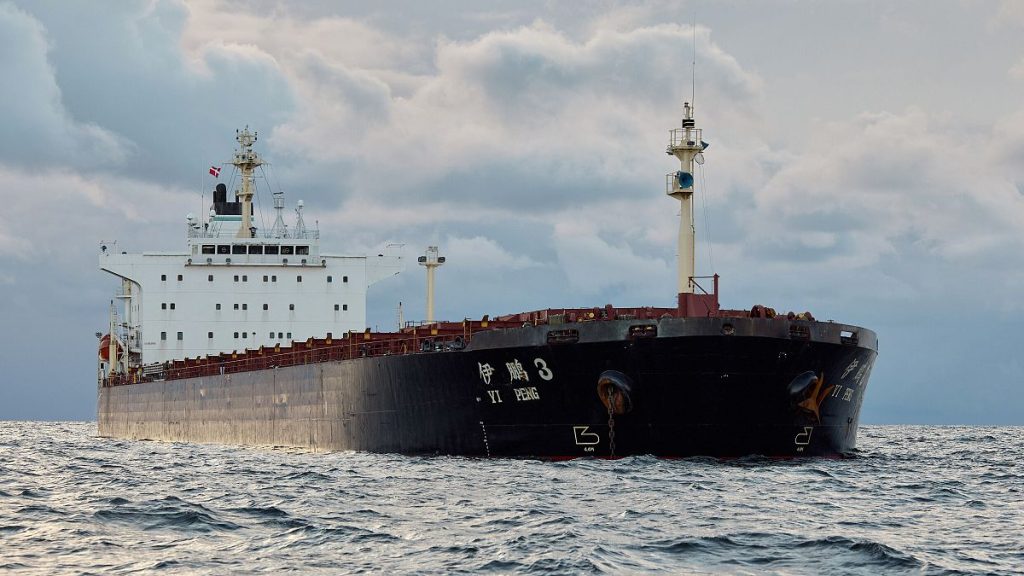Recent events in the Baltic Sea have raised concerns regarding the damage to two critical data cables, one linking Finland to Germany and the other connecting Lithuania to Sweden. The cables were found ruptured in Swedish waters last week, coincidentally in proximity to the Yi Peng 3, a bulk carrier flying the Chinese flag. This incident has prompted Swedish officials, including Prime Minister Ulf Kristersson, to formally request cooperation from China in investigating the situation. Kristersson emphasized the importance of understanding the circumstances surrounding the cable damage and expressed Sweden’s intention for the vessel to enter its national waters for further examination.
The suspicion surrounding the Yi Peng 3 has led investigators to contemplate the possibility that the ship may have deliberately severed the cables while dragging its anchor across the sea bed. Although there have been no signs of explosions in the vicinity—corroborated by NORSAR, a Norwegian foundation specializing in seismic activity—concerns persist over potential malicious intent behind the incident. The Yi Peng 3 is currently located in international waters between Sweden and Denmark, monitored by multiple vessels, including those belonging to the Danish navy, as authorities conduct their investigation.
This incident is part of a larger pattern of maritime security concerns in the Baltic region, acknowledged by leaders during a recent security meeting. Poland’s Prime Minister Donald Tusk expressed his support for Sweden’s investigation, referencing the ongoing threat to safe navigation in the area. Tusk noted that this incident is not isolated and highlighted previous events including the damage to the Nord Stream pipelines, used to transport gas from Russia to Germany, and the Balticconnector gas pipeline, which has also suffered significant damage. These situations have underscored the vulnerabilities in the Baltic Sea and the crucial need for cooperative security efforts among countries in the region.
In terms of official responses, the German defense minister has indicated that the damage to the cables may be a result of sabotage, although there is currently no direct evidence to substantiate this claim. Meanwhile, authorities from Finland, Sweden, and Germany are actively collaborating on investigations into the incident to ascertain the nature and extent of the damage. The implications of such attacks on telecommunications infrastructure raise alarms about the safety and security of essential communication channels in the increasingly contentious geopolitical landscape of Northern Europe.
In the wake of these developments, China has responded by denying responsibility for the Yi Peng 3’s actions while stating its willingness to maintain communication with the involved parties. Despite the lack of clarity around the incident, the potential involvement of a Chinese-flagged vessel adds a layer of complexity to diplomatic relations and regional security dynamics in the Baltic Sea. The Swedish government is keen on establishing a clear narrative around the events to ensure accountability and reinforce maritime safety protocols.
Overall, as investigations unfold, it is clear that the incident involving the damaged data cables is a symptom of larger geopolitical tensions and concerns over marine security in the Baltic Sea. The swift responses from regional leaders, particularly from Sweden and Poland, highlight a commitment to safeguarding maritime infrastructure while fostering collaborative approaches among Baltic nations. The historical context of previous damage to major pipelines accentuates the urgency of addressing these security lapses, with regional stability hinging on effective investigative and diplomatic measures in the months to come.














